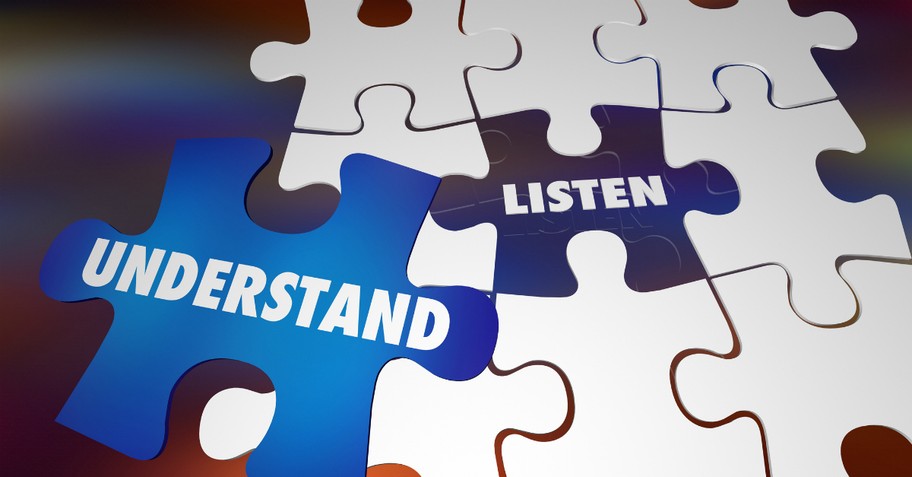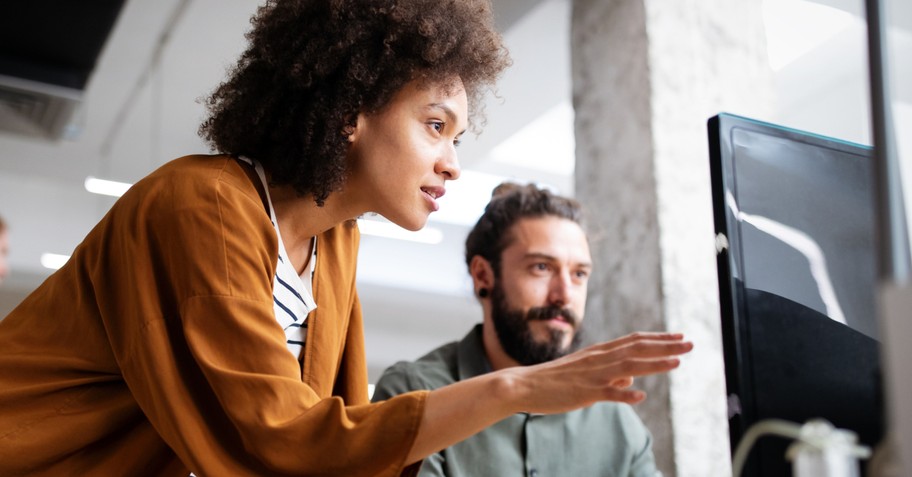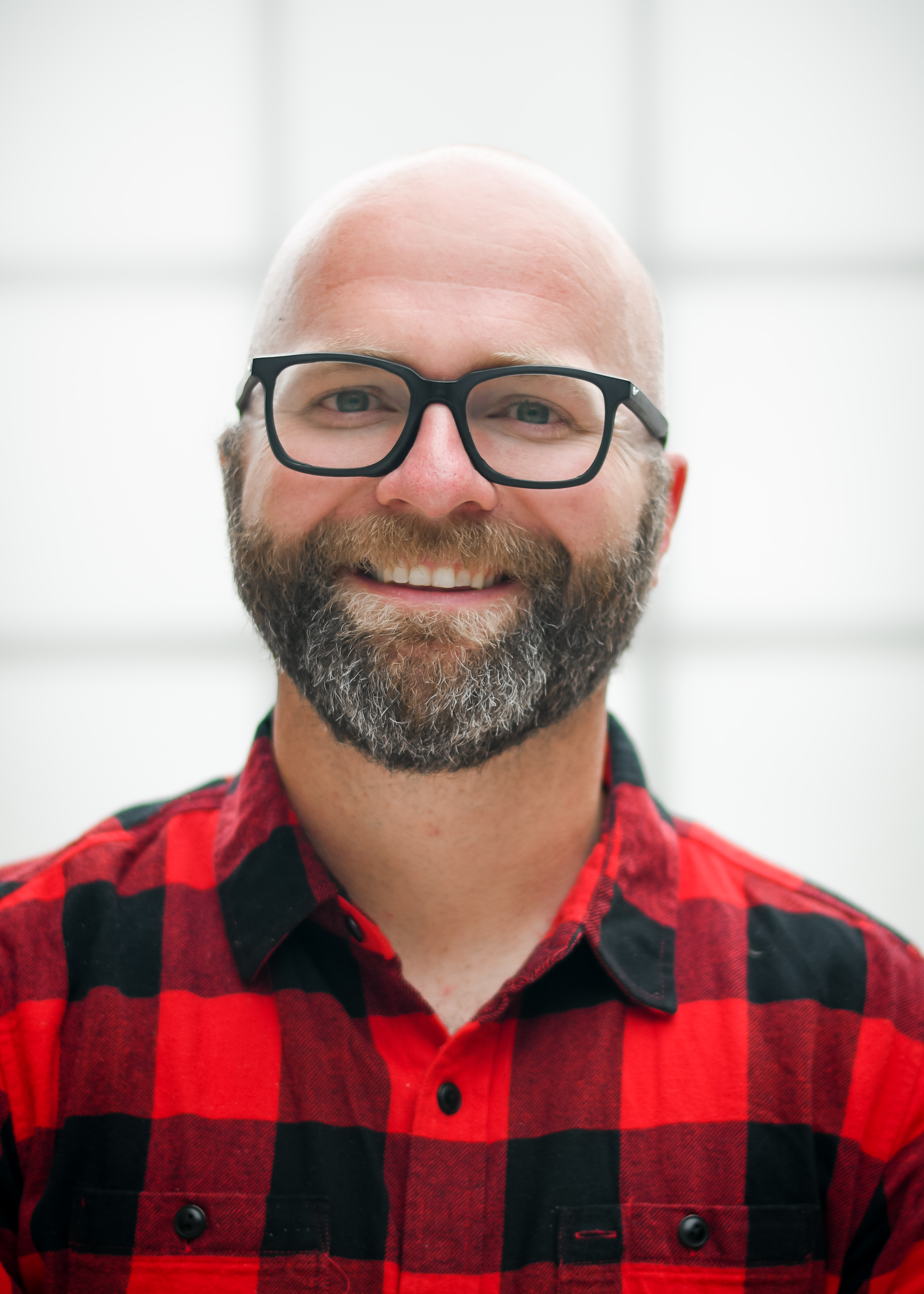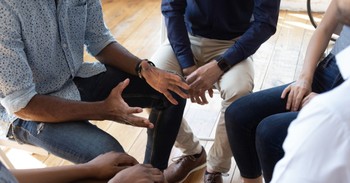4 Best Steps toward Healing Racism from a Conversation with Latasha Morrison

Having a conversation with someone is a risky thing to do these days—like trying to climb steps wearing rollerblades (something my kids were actually trying the other day)!
By conversation, I don’t mean just talking to someone—although the introverts out there might beg to differ—I mean initiating open and honest exchange with another person that may (or may not) think differently than you.
Because right now the world seems more divided than ever. Just scroll through your newsfeed for five minutes and it’s impossible to miss.
- To wear a mask versus not to wear a mask.
- Black lives matter versus all lives matter.
- Democrat versus Republican.
- Opening schools versus keeping them closed.
- Church in person versus church online.
It’s hard to talk to someone who thinks differently than you do right now—which leaves some opting to block others out of their life altogether.
On the other hand, having conversations with people who think, look, and act differently than I do is needed now more than ever. It’s one of the best parts about hosting my podcast called The Conversation—the fact that I get to simply sit down and have a conversation with another human being whose life and experiences, in more ways than one, is so different from mine.
But don’t take my word for it, take Jesus’!
Photo Credit: ©GettyImages/MangoStar-Studio

Jesus Models Seeking Uncomfortable Conversations
Jesus built his life and ministry around hanging out with people that were so different from him in so many ways.
Samaritans.
Tax collectors.
Kids.
Prostitutes.
Fishermen.
Pharisees.
Lepers.
And he encouraged other people to do the same. People in his day, and people today. You. Me. Everyone.
Yes, sometimes it’s going to be uncomfortable for us, but that doesn’t mean we should avoid those types of conversations, those types of people. Instead, we should actually seek them out.
A Conversation with Latasha Morrison
One recent conversation I had that sticks out to me is my conversation with the amazing author, speaker, diversity expert, and unity champion, Latasha Morrison. Latasha and I got to talk on The Conversation podcast about how to begin the work of racial reconciliation in America.
It’s a hard topic for sure, and it’s uncomfortable for a lot of us, but I would argue it’s definitely a conversation worth having.
You can listen to our full conversation here, but as a start, here are the four powerful steps Latasha shared for where to begin the work of racial healing in America.
Photo Credit: ©GettyImages/fizkes

Step 1: Listen (Humble Your Heart)
If we’re ever going to truly reconcile the racial issues in our country, we have to start first by listening, and listening with a humble heart. As Latasha and I talked, she said something that really stuck out to me: “so many people come into this conversation about race thinking they already know everything.”
Mic drop.
Is that me? Is that you? We have to have a heart of humility when it comes to conversations about race, and we have to be willing, above all, to listen.
Latasha herself said she’s constantly trying to learn something new every day, whether that’s about Native American history or the racism that’s happening towards Asian Americans as a result of the pandemic. Even though she has a book and whole organization on the topic of building bridges (you can find out more about Be the Bridge here), Latasha said she’s still learning and growing in these areas herself.
We must make an effort to listen. Not listening just to hear, but listening to learn—listening to make a heart connection with another person and truly understand their side of the issue.
Humble your heart and listen.
Photo Credit: ©GettyImages/iQoncept

Step 2: Learn (Diversify Your Input)
The second step in this work toward racial reconciliation is to learn—diversifying your input and being an educator of yourself.
Latasha challenged me, and those listening, to make an effort to learn from those who don’t look like you. That could mean:
- Being in community with people from different backgrounds.
- Following people on social media who look and think differently from you.
- Assessing the books you’re reading, the pastors you’re listening to, and the TV you’re watching.
And that doesn’t just mean watching Black Panther, Latasha said.
Make an effort to diversify the content you’re consuming, the people you listen to, and learn from someone whose life experience has been totally different from your own.
If you’re looking for a good place to start learning, Be the Bridge has a great list of resources (books, movies, seminars) that are perfect for anyone wanting to diversify their input.
Step 3: Lament (Tell the Truth)
Lamenting, or a truthful expression of loss or hardship, is arguably one of the most difficult steps in this process of facing racial issues head on.
As Latasha put it, to lament is to tell history as it is.
She talked about places like Germany, South Africa, Rwanda...all countries that have a history of seriously terrible racial injustice. These are also countries that have made an effort to bring healing and restoration to the communities and groups that have been harmed.
Not by glossing over what happened in the past, but by telling the truth and confronting it.
We have to lament our history, however uncomfortable that may be. Not to shame the guilty parties, but to bring that healing Latasha talks about.
When we feel overwhelmed and full of shame, let’s cry out to God to create change. Let’s lament.
Photo Credit: ©GettyImages/nd3000

Step 4: Leverage (Use Your Platform and Influence to Lift Others)
We all have some element of privilege in our lives, whether that’s the color of our skin, financial status, number of followers on Instagram, or something else entirely. It’s what we do with that privilege that can define this work of racial reconciliation in our lives and communities.
When you have the privilege of a platform (like a podcast), you can leverage a story and make that story known to a bigger group of people that may not have heard it otherwise.
Even if you don’t think your platform is huge, we all have influence somewhere, even just in our own friend groups. Use the influence you’ve been given to lift up stories and causes other than your own.
Tell your friends about a book you’re reading by an author who doesn’t look like you.
Talk to your family about issues of race and privilege.
Share resources on your social media.
Whatever that leveraging looks like, make an effort to use the privilege you have not just to tell your story, but also to tell the stories of people who might otherwise not be heard in your circle of influence.
These four steps toward racial reconciliation that Latasha and I talked about might seem overwhelming at first, but I’d encourage you to simply start with one thing and move on from there.
Listen.
Learn.
Leverage.
Do the next right thing today, to be the bridge in your community, or your little corner of the world...and see where the bridges you build today can lead to more and more bridges being built tomorrow.
As Latasha often says: let’s create spaces to be brave in, together.
Recommended for You:
Be the Bridge: Practical Steps to Racial Reconciliation
10 Signs Your Church Is Not Embracing Racial Reconciliation
10 Scriptures about God’s Heart towards Social Injustice
6 Must-Read Books for Building Bridges toward Racial Reconciliation
Memorize These 14 Biblical Verses to Address and Overcome Racism
4 Important Things to Know about What Privilege Does Not Mean
Photo Credit: ©GettyImages/Ivanko Brnjakovic
Originally published July 30, 2020.






